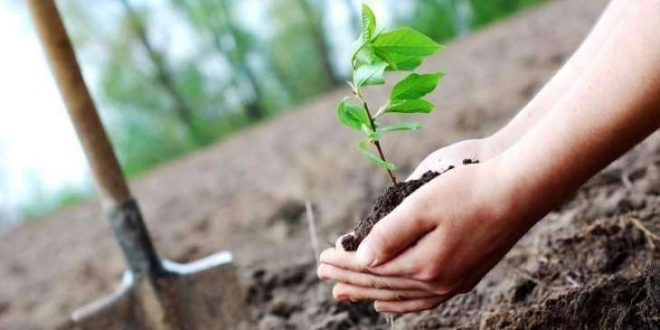Srinagar, Dec 1: Land degradation and lack of nutrients in Kashmir’s soil might be restricting the success of plantation drives in the valley, reveals a new study.
“Afforestation and reforestation programs conducted by the government are used to reverse the environmental and livelihood problems caused by deforestation. However, the land degradation and lack of enough nutrients in the soil is restricting the successful establishment of new plantation,” reveals the study titled ‘Root-associated fungi of Pinus wallichiana in Kashmir Himalaya.’
The 2018 research was conducted by Sumira Tyub, Azra N. Kamili, Zafar A. Reshi, Irfan Rashid, Taseem A. Mokhdomi, Shoiab Bukhari, Asif Amin, Asrar H. Wafai, and Raies A. Qadri of Department of Botany, University of Kashmir.
The study was carried in the forests of Tangmarg, Mammar and Pahalgam which are predominately coniferous, with Himalayan Pine (Pinus Wallichiana) growing naturally along the entire length.
The study explains that the plant species included in the active restoration programs must overcome this nutrient deficiency to achieve satisfactory growth and development.
“An alternative plan consists of using micro-organism (ectomycorrhizal (EcM) fungi) associated with plants particularly at an early stage of seedling development can be implemented. EcM fungi increase seedling vigor when resources are limited and enhance the competitive ability of seedlings during establishment,” says the study.
The study notes that it has been estimated that about 90% of the terrestrial plant species undergo an improvement in mineral nutrient uptake when provided with appropriate microbes (mycorrhizal fungi).
“Government plant sapling without providing the amount of micro-organism associated with that particular plant. Due to which the plants could not absorb the appropriate amount of nutrients from the soil. With the result their growth is stunted and due to the harsh winter conditions the sapling may not survive,” said Sumaira Tyub, one of the authors of the research.
Tyub said supplying the appropriate micro-organism helps in facilitating nutrient absorption and growth of plant. Professor of Botany at the University of Kashmir Irfan Rashid, said due to the climate change, forests in Kashmir are depleting and soil is lacking enough essential micro-organisms promoting the plant growth.
“Plantation drives are carried out to overcome the deforestation. However, survival chances of planted trees are not seen because microbes are not up to the mark which actually makes the drive successful,” he said.
Rashid said the study identified micro-organism associations with particular plant species, which can be cultured and then transferred into the soil to help the successful growth of saplings.
Professor Zafar Reshi, Dean Research, Kashmir University, said root associated micorrhiza is very essential for the growth of plants. “For rehabilitating depleted forests, plantation drives are put in place. However, seedling will not survive in nature if they are not inoculated with right kind of microbes (mycorrhiza),” he said.
Professor Reshi explained that after inoculating the seedling the chance of survival of saplings increases.
Chief Conservator Forests Kashmir, Farooq Gillani however said no such thing has happened till date. “If Kashmir University has done any such research they should share with us and SKUAST.”











